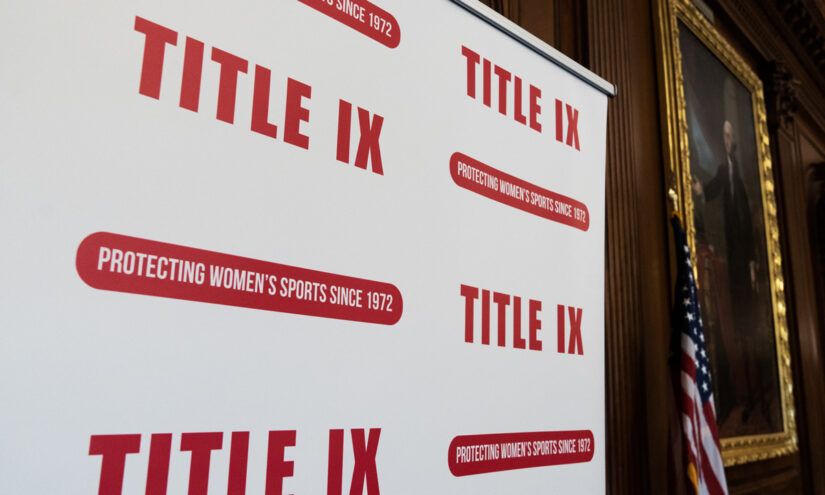Reflecting on the tenets that shape our educational practices is fundamental for …
Courts Provide Mixed Response to New Title IX Rule, Days after its Implementation
Jennifer Livingstone

Ravina Nath, a recent graduate from Gunn High School in Palo Alto, California, initially had Rice University in Houston on her list of colleges to attend this fall. Fascinated by neuroscience, she was attracted to its top-ranked biomedical engineering program.
That changed as Texas joined 26 states in suing the U.S. Department of Education over its new Title IX rule. The revision broadens protections for LGBTQ students, necessitating swift investigations into student complaints.
Consequently, Nath opted for Barnard College in New York City.
“I require a supportive school environment,” Nath explained. A former Title IX advocate in high school, she considered complaints at Rice University regarding sexual misconduct. The University of Georgia, a possible safety school, did not disclose its 2021 sexual misconduct investigation data, leading her and her friends to select schools on the West Coast or Northeast.
“My friends, who are survivors and LGBTQ+ students, did not apply to schools in Florida,” Nath added.
With the imminent Aug. 1 start date for the new rule, lawsuits have scrambled the country into a mix of red and blue states.
Fifteen Republican-led states had the rule blocked by district courts. Responding to appellate courts’ rejections, the Biden administration sought Supreme Court approval to enforce most gender identity provisions in ten affected states.
The legal complexity grew as a Kansas federal judge halted the rule at schools serving Moms for Liberty’s children and Female Athletes United participants in a move that Moms for Liberty sought to leverage by opening a membership drive linked to Title IX.
Navigating the shifting legal terrain, experts recommend the Education Department delay the rule for a calmer implementation.
As the Supreme Court contemplates lifting the rule’s temporary halt in affected states, the future of the rule itself remains uncertain. Alongside new safeguards for LGBTQ students, the rule replaces Betsy DeVos’s regulation, focusing on issues like sexual misconduct definitions and live hearings with accusers.
W. Scott Lewis from TNG Consulting suggests that red states under injunction adhere to the 2020 regulation until further Supreme Court decisions provide clarity.
Some families have left red states ahead of the legal showdown over laws limiting trans students, relocating to more accepting environments like Colorado.
The debate over transgender rights and Title IX extends to concerns about discipline for not using preferred pronouns, speech censorship, and shared facilities.
Amidst the legal flux, Supreme Court precedent in Bostock v. Clayton County suggests that LGBTQ rights are protected from discrimination, underpinning the Biden administration’s new rule.
In a post-Loper Bright Enterprises v. Raimondo world overturning Chevron deference, federal agencies face stricter scrutiny, impacting the fluidity of Title IX enforcement.
Republicans intend to review the Education Secretary’s directives since Biden’s term began, wary of perceived government overreach. The Heritage Foundation’s Project 2025 proposes sanitizing federal rules, eliminating terms like sexual orientation and gender identity.
Any attempt to reinstate the DeVos rule may encounter resistance leveraging the Loper Bright decision’s precedent against agency flip-flopping.


